California Labor Code Section 2802 provides that an employer “shall indemnify his or her employee for all necessary expenditures or losses incurred by the employee in direct consequence of the discharge of his or her duties, or of his or her obedience to the directions of the employer[.]” If a recent appellate court decision stands, this obligation now includes reimbursing employees for a “reasonable percentage” of their personal cell phone bills for their work-related usage.
In Cochran v. Schwan’s Home Service, Inc., issued on August 12, the Second District appellate court held that when employees must use their personal cell phones for work-related calls, Section 2802 requires the employer to reimburse them. The decision reversed a trial court ruling that denied class certification for a group of employees who were seeking compensation for work-related charges that they had incurred on their personal cell phones.
The court noted that the purpose of Section 2802 is “‘to prevent employers from passing their operating expenses on to their employees.’” After evaluating whether employers “always have to reimburse an employee for the reasonable expense of the mandatory use of a personal cell phone,” the court was unequivocal in its conclusion:
The answer is that reimbursement is always required. Otherwise, the employer would receive a windfall because it would be passing its operating expenses onto the employee. Thus, to be in compliance with section 2802, the employer must pay some reasonable percentage of the employee’s cell phone bill.
The court continued, holding that the details of the employee’s cell phone plan are irrelevant as is whether a third-party pays the cell phone bill:
If an employee is required to make work-related calls on a personal cell phone, then he or she is incurring an expense for purposes of section 2802. It does not matter whether the phone bill is paid for by a third person, or at all. In other words, it is no concern to the employer that the employee may pass on the expense to a family member or friend, or to a carrier that has to then write off a loss. It is irrelevant whether the employee changed plans to accommodate worked-related cell phone usage. Also, the details of the employee’s cell phone plan do not factor into the liability analysis…To show liability under section 2802, an employee need only show that he or she was required to use a personal cell phone to make work-related calls, and he or she was not reimbursed.
California employers may need to reconsider their current policies regarding employee cell phone use (if they have a policy at all) and may need to either issue certain employees company-owned phones or ensure that employees keep and submit accurate records regarding their work-related calls on their personal phone such that an employer can determine the “reasonable percentage” of the cell phone bill that is now their responsibility under Section 2802.
Yee Law Group Inc.: Sacramento and Roseville Area Business Lawyers
At Yee Law Group Inc., your business is our business. We partner with our business clients to provide them counsel they can rely on so they can focus on growing their business. The business world is fraught with challenges; your business lawyers should be ready to face those challenges with you head-on. If your business needs reliable, accessible, and personalized counsel, we welcome the opportunity to see how we can help. Please give us a call at (916) 599-7297. We look forward to the privilege of being your attorneys.
This article has been prepared by Yee Law Group Inc., PC for informational purposes only and does not, and is not intended to, constitute legal advice. The information is not provided in the course of an attorney-client relationship and is not intended to substitute for legal advice from an attorney licensed in your jurisdiction.


